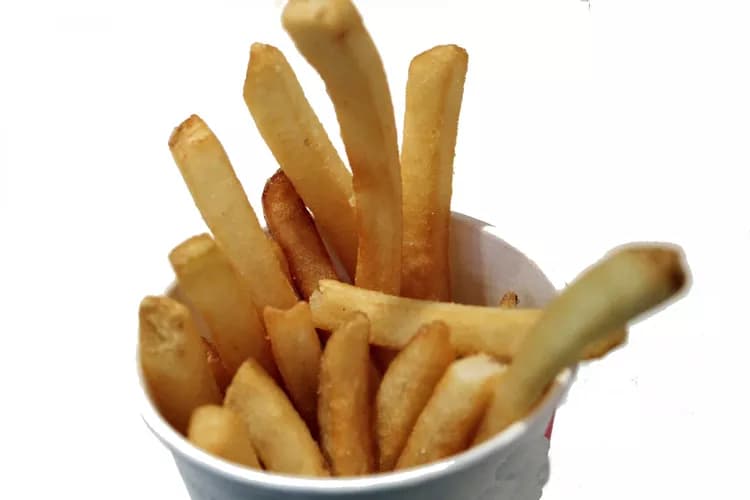
Broccoli V. French Fries: Appealing To Teens' Impulse To Rebel Can Curb Unhealthy Eating
It's no secret that the adolescent years can be challenging: young teens have a heightened sensitivity to perceived injustice and react against authority. And their newfound social conscience and desire for autonomy can motivate many of their decisions -- even food choices.
A new study, "Harnessing Adolescent Values to Motivate Healthier Eating," by Christopher J. Bryan of the University of Chicago Booth School of Business, and David Yeager of the University of Texas, finds that by appealing to widely-held adolescent values, it's possible to reduce unhealthy eating habits and motivate better food choices among adolescents.
The paper was published September 12 in the Proceedings of the National Academy of Sciences.
"Our goal here was to portray healthy eating as a way to take a stand against injustice -- to stand up for vulnerable people who lack the ability to protect themselves."
To capture the motivating power of these values, researchers worked with groups of eighth graders to reshape their perception of healthy eating as an act of independence that serves the purpose of social justice.
"We took a two-pronged approach to this," Bryan says. "First, our healthy eating message was framed as an exposé of manipulative food industry marketing practices that influence and deceive adolescents and others into eating larger quantities of unhealthy foods."
The researchers also described journalistic accounts of such industry practices as engineering processed foods to maximize addictiveness and to encourage overconsumption, as well as using deceptive labeling to make unhealthy products appear healthy.
Additionally, researchers outlined manipulative industry practices like disproportionately targeting poor people and very young children with advertisements for the unhealthiest products.
"We framed healthy eating as a way to 'stick it to the man' -- we cast the executives behind food marketing as controlling adult authority figures and framed the avoidance of junk food as a way to rebel against their control."
And it worked.
The test subjects chose fewer junk food options as snacks and preferred water over sugary sodas. The teens made the choices outside the context of the nutrition talk, when they were unaware their choices were being tracked.
The treatment resulted in a 7 percentage point increase in the rate at which teens chose to forgo sugary drinks in favor of water. It also led to an 11 percentage point increase in the rate at which they opted to forgo at least one unhealthy snack (chips or cookies) in favor of something healthy (fruit, carrots, or nuts).
"It is exciting to consider what the size of these effects would look like if extrapolated to average daily consumption," Bryan says.
For example, if sustained over time, a 7 percent reduction in adolescents' consumption of carbohydrates would correspond to one pound of body fat lost (or not gained) roughly every 6 weeks for boys and every 8 weeks for girls.
Policy analysts argue that preventing obesity is both more effective and less expensive than treating people who are already obese. The potential for this new "value harnessing" approach could lead to lasting change.
"This approach provides an immediate, symbolic benefit for resisting temptation: feeling like a high-status and respect-worthy person right now because one is acting in accordance with important values shared with one's peers," Bryan says.
Additionally, an intervention based on this work could use tactics -- such a school-wide campaigns with student-designed posters and online videos -- that could create a lasting and self-reinforcing social movement.
The above post is reprinted from materials provided by University of Chicago Booth School of Business. Note: Content may be edited for style and length.
Disclaimer: DoveMed is not responsible for the adapted accuracy of news releases posted to DoveMed by contributing universities and institutions.
Primary Resource:
Bryan, C. J., Yeager, D. S., Hinojosa, C. P., Chabot, A., Bergen, H., Kawamura, M., & Steubing, F. (2016). Harnessing adolescent values to motivate healthier eating. Proceedings of the National Academy of Sciences, 201604586.
Related Articles
Test Your Knowledge
Asked by users
Related Centers
Related Specialties
Related Physicians
Related Procedures
Related Resources
Join DoveHubs
and connect with fellow professionals

0 Comments
Please log in to post a comment.